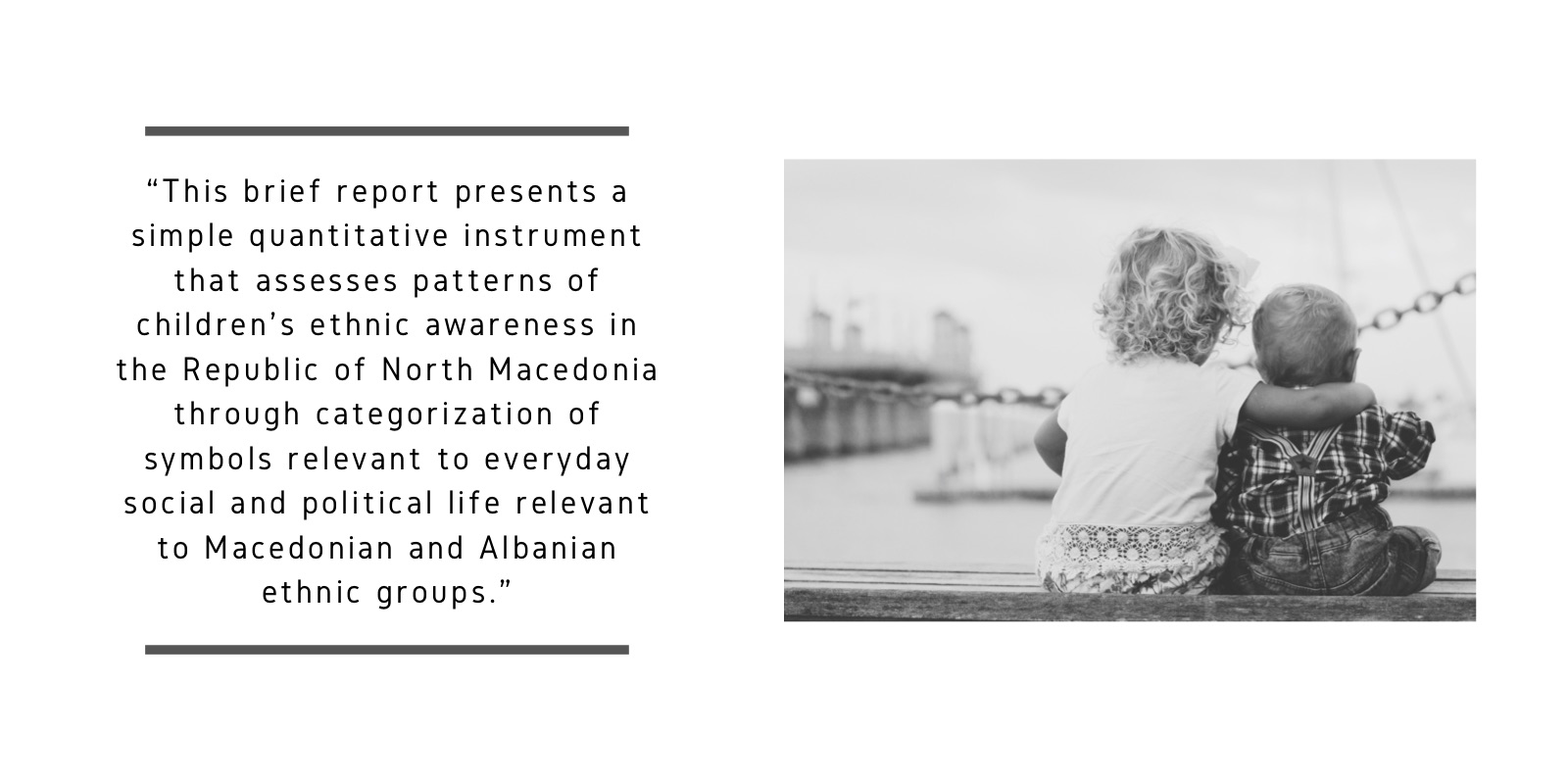The 'Helping Kids!' research project celebrates its first journal publication

After multiple years of data collection in Northern Ireland and around the world, namely in Kosovo and the Republic of North Macedonia (RNM), the Helping Kids! lab’s first paper has been accepted for publication in the APA's Peace and Conflict: Journal of Peace Psychology. The brief research report focuses on the RNM and considers the development of ethnic awareness in children by looking at children’s awareness of symbols pertinent to interethnic relations. The report presents a new, simple quantitative instrument that assesses children’s ethnic awareness through categorization of symbols of everyday social, cultural, and political life relevant to both the Macedonian and Albanian ethnic groups.
The brief report includes quantitative data, but interviews with stakeholders in the RNM, such as practitioners, educators, parents, and NGO workers, helped the research team better understand children’s responses to the categorization tasks. These interviews brought important themes to light, including that structured activities are valuable because they allow children from different backgrounds to have contact, that language barriers are a problematic factor during interethnic contact, and that there is a lack of adult role models demonstrating interethnic equality and collaboration. Furthermore, the educational system in the RNM has remained divided and children attend school based on their group background. The educational system lacks the capacity to promote better intergroup relations, so stereotypes remain widespread among primary and secondary school students and staff from both groups. Many of these themes are demonstrated in the following two quotations pulled from interviews:
- “The outcomes of the contact situations depends on the adults and their interpersonal communication. Children need to trust the teachers and the setting to be ‘safe’ so that positive interethnic communication is facilitated.”
- “Schools do not reflect our authentic multicultural reality; there is discrepancy between what is served in schools and what we expect from kids when they are adults and active citizens.”
Dr. Laura Taylor and Dr. Jocelyn Dautel run the Helping Kids! lab, which has an overall aim to explore developmental changes related to children’s prosocial behaviours in post-accord settings. Specifically, they study how ethnic awareness develops in children and the potential implications this has for ethnic prejudice and prosocial behaviours in divided societies, such as Northern Ireland and the RNM.
The full RNM paper can be accessed here: https://pure.qub.ac.uk/portal/en/publications/childrens-understanding-of-ethnic-group-symbols-piloting-an-instrument-in-the-republic-of-north-macedonia(d7b47f35-4ad2-4852-bdb1-14fe48ad1b58).html
